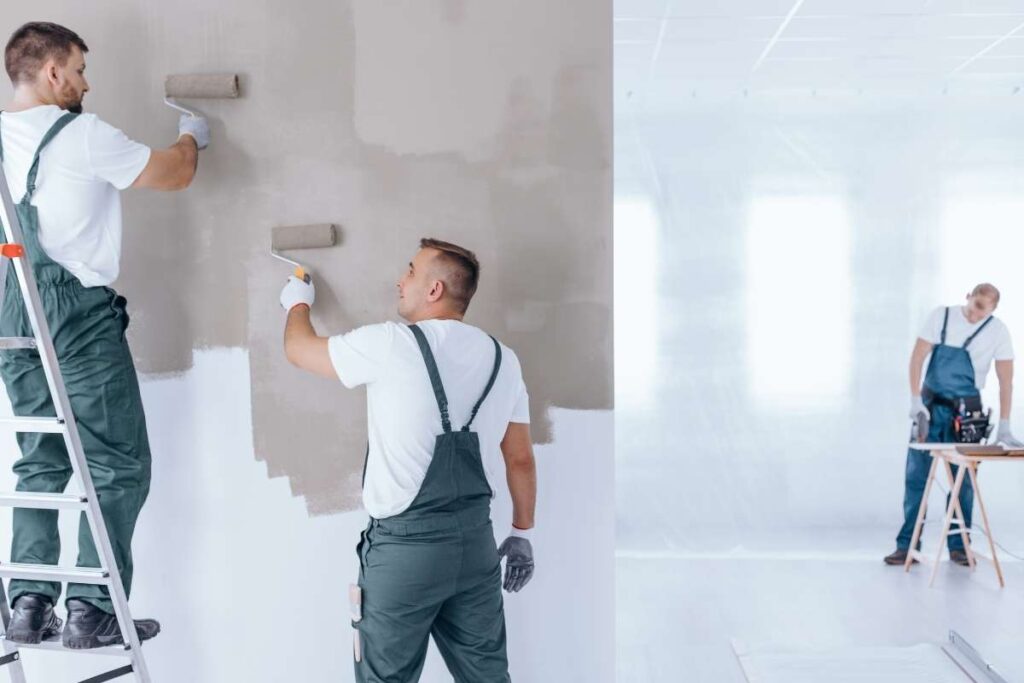Renovating a condo Toronto is a unique challenge which differ from the process of remodeling a home. Condos are convenient and provide modern-day living, any renovations–no no matter how small–must be in accordance with the specific guidelines that are set in condominium board condominium board as well as or the Toronto home renovation company and in some instances even the Ontario Building Code.
If you’re considering an upgrade to your condo this guide will help you understand the essential permits or approvals you should be aware of prior to starting.
1. Condo Board Approval is Step One
Before you contact contractors or purchasing materials, it is important to check with the condominium board and/or Property Management Office.
They generally will require:
- An in-depth outline of the proposed renovation
- Plans or drawings specifically for layout modifications
- Information about the contractor and insurance
- Work calendars and timelines
- Evidence that you have WSIB protection as well as liability insurance
The condo board could also limit:
- Working hours (e.g. on weekdays, 9 am – 5 pm)
- The use of elevators
- Noise levels
- Waste removal protocols
Inability to obtain written permission from your board may lead to legal problems or fines, even if the project is in compliance with construction code.
2. When Do You Need a City of Toronto Building Permit?
Some condo renovations do not require an approval from the city, however the majority of plumbing, structural and electrical renovations do.. You need to apply for the permit for building by contacting Toronto Building Services If your construction project involves:
- Removal or alteration of wall surfaces (even walls that are not load bearing)
- Changes in water pipes (e.g. moving toilets, tubs, sinks)
- Moving or installing electric wiring
- Replacing walls and doors with fire-rated construction
- Modifying or modifying any fire protection system
- Significant floorplan reconfiguration
NOTE: Condos share mechanical electrical, electrical, and life security systems. Unauthorized modifications can impact neighboring units, or even violate building codes.

3. Interior Cosmetic Updates That Typically Don’t Need a Permit
It is the norm that you don’t require an authorization to:
- Painting
- Installation of new flooring (if the soundproofing requirements are in place)
- Countertop and cabinet replacement (no plumbing changes)
- Replacing lighting fixtures (without wiring)
However, even changes that are cosmetic could need the approval of the board in particular when they impact basic elements such as windows, balconies, as well as hallways.
4. Fire & Soundproofing Rules in Condo Renovations
The majority of Toronto condos have strict rules for:
- Doors and walls that are fire-rated It is not possible to alter or replace them without permits or inspections.
- Soundproofing flooring upgrades typically require a particular impact insulation Class (IIC) rating. Boards might require soundproofing for tile installations or hardwood floors to reduce sound transmission.
5. Hiring the Right Contractor is Critical
Select a contractor with experience in condominium renovations that is aware of the following:
Soundproofing flooring upgrades typically require a particular impact insulation Class (IIC) rating. Boards might require soundproofing for tile installations or hardwood floors to reduce sound transmission.
- Condo board procedures
- City permit conditions
- The scheduling of elevators and waste disposal logistics
- Working in confined spaces as well as in buildings that are not occupied
Professionals who are licensed should be able to provide:
- Certificate WSIB from WSIB
- Liability insurance (usually at a minimum of $2 million)
- Referrals to previous condo projects
6. Inspections and Final Approval
If your project needed the building permit:
- Soundproofing flooring upgrades typically require a particular impact insulation Class (IIC) rating. Boards might require soundproofing for tile installations or hardwood floors to reduce sound transmission.
- City inspectors will check your home at various points (e.g. following framing and plumbing, after rough-ins and prior to drywall).
- Final approval is granted only after all inspections have been passed.
Your condo board could also organize the after-renovation walkthrough to make sure that the works are in accordance with their requirements and to ensure that there is no damage in common spaces.
7. Timelines and Delays
Renovations to condos typically take longer because of:
- Access to the internet is limited.
- Booking service elevators
- We are waiting for approvals from multiple parties
- Deliveries that require escorts or prior notification
Always include the buffer of one to two weeks to allow for delays.
Conclusion
Remodeling your home in Toronto will improve comfort, functionality and resale worth, but only if it is done legal and properly. If you have the proper plans and guidance from experts your renovation will meet your expectations as well as your building’s specifications.
Do you have plans to renovate your condo within Toronto?
Our expert team will handle designs, permits, as well as communicating to your condominium board to ensure an effortless, code-compliant project. Contact us today for a consultation.
Soundproofing flooring upgrades typically require a particular impact insulation Class (IIC) rating. Boards might require soundproofing for tile installations or hardwood floors to reduce sound transmission.


